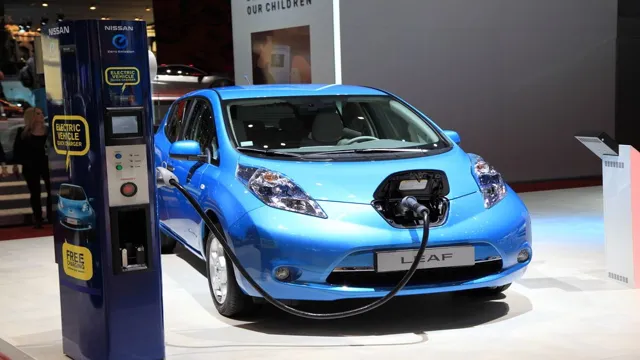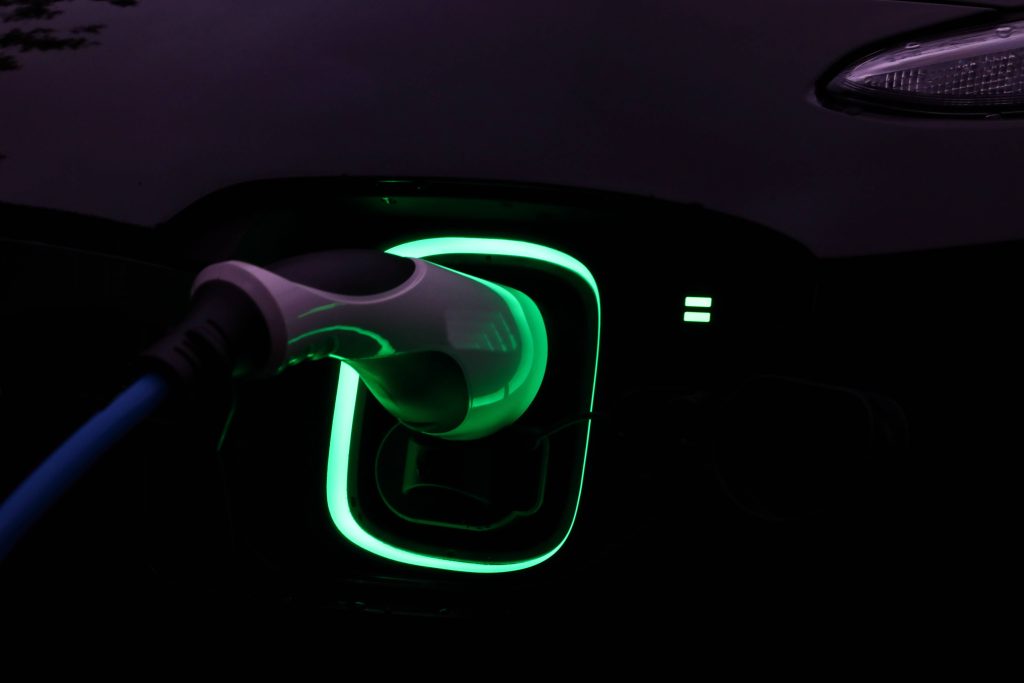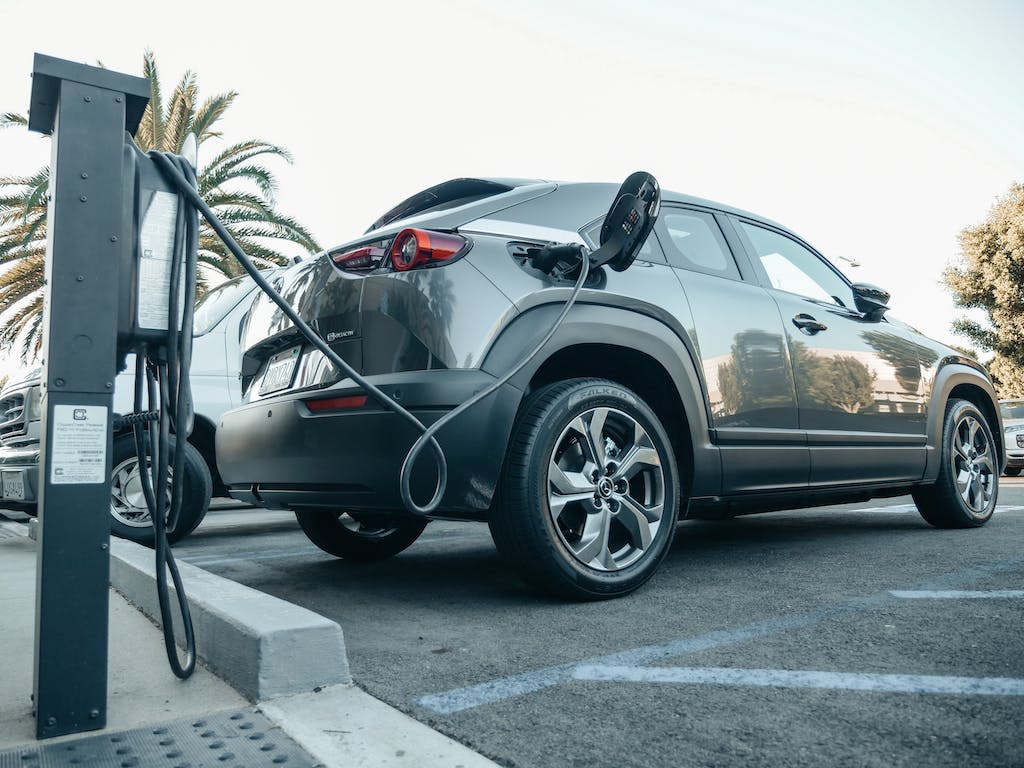Revolutionizing Transportation: How Electric Cars Save the Planet
Electric cars have emerged as a popular topic among environmentalists, policymakers, and individuals who wish to make a positive contribution to our planet. There is no denying that transportation is one of the leading causes of greenhouse gas emissions globally, producing around 15% of all man-made carbon dioxide (CO2) emissions. As awareness about the adverse effects of these emissions has increased, more and more people are contemplating switching to electric cars.
Electric cars have a significant impact on the environment, with zero tailpipe emissions that help cut air pollution. The technology is advancing rapidly, and the benefits of driving electric vehicles span far beyond the environmental impact they have. In this blog post, we will explore how electric cars can save the planet while providing an excellent driving experience for car owners.
Environmental Impact
Electric cars are becoming increasingly popular, not just because they offer a more eco-friendly mode of transportation, but because they also have the ability to save the planet. While traditional gas-powered vehicles produce pollutants that harm the environment, electric cars create zero emissions. This means that they don’t emit any greenhouse gases, which contribute to climate change.
In addition, electric cars can be powered by renewable energy sources like solar or wind power, making them even more environmentally friendly. Not only do electric cars have a positive impact on the environment, but they also have the potential to reduce our dependence on foreign oil. With electric cars, we can rely more on domestic energy sources, which creates jobs and reduces our country’s energy costs.
Additionally, electric cars produce less noise pollution than gas-powered vehicles, which can have a positive impact on our cities and communities. Overall, investing in an electric car is a wise choice for anyone who wants to make a positive impact on the environment and reduce their carbon footprint. As more people switch to electric cars, we will see a reduction in greenhouse gas emissions and a shift towards renewable energy sources.
By choosing electric cars, we can all do our part to save the planet.
Carbon Emissions
Carbon emissions are one of the biggest contributors to environmental impact. These emissions come from various sources such as factories, cars, and other industrial activities. When carbon emissions go up, it causes a disturbance in the natural balance of our planet leading to global warming.
This phenomenon not only severely affects the environment but also creates a domino effect on human life, causing natural disasters, extinction of species and climate change. We must take action to reduce carbon emissions quickly before it is too late. We can opt for renewable energy sources such as wind, solar, and hydro-energy.
It’s Time to be conscious of our actions, and it starts with making small efforts towards reducing our carbon footprint. By making small changes in our daily routine such as not leaving the lights on, taking public transport or walking instead of driving, and recycling are some effective ways to help decrease carbon emissions. Remember, every effort counts towards making our planet healthier and habitable for future generations.

Reduced Air Pollution
Reduced air pollution is a significant environmental impact that has been observed in recent years. As we all know, air pollution is harmful to our health and the planet we live in. Due to various reasons, including the decrease in transportation and the switch to renewable energy sources, the level of pollutants in the air has decreased substantially.
For instance, the lockdown imposed due to the COVID-19 pandemic, led to the reduction in vehicles on the road, factories, and other commercial activities. As a result, the air quality in many cities has significantly improved. This reduction in air pollution has not only led to better air quality but has also significantly contributed to climate change mitigation.
Carbon dioxide and other greenhouse gases, which are the primary cause of climate change, are mainly released due to human activities such as transportation and industrial processes. By taking measures to reduce air pollution, we can significantly contribute to reducing the amount of greenhouse gases emitted into the atmosphere.
Cost Savings
Electric cars save the planet, but did you know they can also save you money? The cost savings of owning an electric car might surprise you. Firstly, one of the most significant savings comes from fuel costs. Electricity is generally cheaper than gasoline, so filling up your car’s battery will cost less than filling up a tank with gas.
Additionally, electric cars require less maintenance, saving you money on regular tune-ups, oil changes, and other repairs. Finally, governments and utility companies often offer incentives that can help offset the initial cost of purchasing an electric car. These include tax credits, cash-back incentives, and discounts on charging stations.
Overall, choosing an electric car can not only benefit the planet but also your wallet.
Fuel Savings
Fuel savings are becoming increasingly important in our world today, as gas prices continue to rise, and people are seeking ways to reduce their expenses. Cost savings through fuel efficiency can be achieved in a number of ways, including reducing weight, improving aerodynamics, and using alternative fuels. One of the easiest ways to save fuel is by keeping your vehicle well maintained.
Regular oil changes, tire rotations, and air filter replacements can all help keep your engine running efficiently. Additionally, driving techniques can significantly impact fuel usage. By accelerating slowly, maintaining a steady speed, and avoiding sudden braking, you can maximize your fuel efficiency.
Another option is to switch to a hybrid or electric vehicle, which can offer significant fuel savings over the life of the vehicle. Overall, focusing on fuel savings can not only help save money, but also reduce our ecological impact on the planet.
Maintenance Savings
Maintenance savings can significantly impact your bottom line, as the cost of maintaining equipment and facilities can quickly add up over time. Preventive maintenance strategies, such as regularly scheduled inspections and tune-ups, can lower overall maintenance costs by allowing technicians to identify and address issues before they become major problems. Additionally, a well-maintained facility can increase energy efficiency and reduce operating costs related to utility bills.
By investing in maintenance programs, businesses can not only save money on costly repairs but also extend the lifespan of their equipment and facilities. It’s like getting a regular tune-up on your car to avoid a major breakdown and costly repairs down the road. The payoff can be huge in terms of both cost savings and peace of mind, knowing that your business is running efficiently and effectively.

Tax Incentives
Tax incentives can be a real game-changer for businesses, providing attractive cost savings that can help them grow and thrive. These incentives come in a variety of forms, from tax credits and deductions to grants and low-interest loans. By taking advantage of these programs, businesses can lower their overall tax burden and redirect those savings into key areas of growth, such as expanding their workforce, investing in new technology, or increasing production capacity.
Additionally, tax incentives can often help companies become more competitive in their respective industries, positioning them for greater success in the long run. So if you’re a business owner looking to save money and boost your bottom line, be sure to explore the various tax incentives available to you. Who knows, you might just find the key to unlocking your company’s full potential!
Future of Transportation
Electric cars are the future of transportation, and they come with big environmental benefits. By emitting far less pollution than traditional cars, electric vehicles can help to save the planet. They are powered by electricity, which means they don’t need gasoline or other fossil fuels to run.
This eliminates emissions from tailpipes, which are one of the biggest contributors to air pollution. Compared to gas-powered cars, electric cars emit up to 50% fewer greenhouse gases, helping to slow the effects of climate change. Additionally, electric cars offer significant financial savings over time, as they require less maintenance and have lower fuel costs.
As the technology continues to improve and prices become more reasonable, we can expect to see more and more electric vehicles on the road. It’s an exciting time for the world of transportation, as we work towards a cleaner and more sustainable future.
Advancements in Technology
The future of transportation is looking incredibly exciting thanks to the ever-evolving advancements in technology. We are on the brink of a transportation revolution that will make the future of mobility cleaner, faster, and more efficient than ever before. One of the most significant developments in this area is the rise of electric and hybrid cars, which offer a cleaner alternative to fossil fuel-based cars.
In addition, self-driving cars, drones, and hyperloop trains are all exciting innovations that could soon become a reality. These new advances in transportation technology will revolutionize the way we travel, making it easier, safer, and more convenient to get around. With the increased efficiency and reliability of these new modes of transportation, we will be able to decrease traffic congestion, reduce emissions, and cut down on travel time.
It’s an exciting time to be alive, and the future of transportation is looking brighter than ever before.
Shift Towards Sustainable Transportation
The shift towards sustainable transportation has become more prevalent in recent years, as individuals and governments alike have recognized the importance of reducing carbon emissions and creating a cleaner environment. With advancements in technology, there are now more eco-friendly options available to the public, such as electric and hybrid vehicles. But the future of transportation goes beyond just cars.
The rise of alternative transportation methods, such as shared bikes and scooters, has also played a significant role in reducing carbon footprints. Additionally, the integration of public transportation and bike lanes in cities has made it easier for people to choose sustainable transportation options. While there are still challenges ahead, the shift towards sustainable transportation is a promising step towards a greener future.
Conclusion
In summary, electric cars are not just a trendy fad, but a necessary solution to the pressing issue of climate change. By emitting zero emissions, they significantly reduce greenhouse gas emissions and improve air quality. They are quieter, more efficient, and ultimately cheaper to operate than gas-guzzling vehicles.
Electric cars have the power to save the planet, one charge at a time. So, why not join the electric revolution and feel good about protecting our planet for future generations?”
FAQs
How do electric cars help save the planet?
Electric cars help reduce carbon emissions, which helps to improve air quality and mitigate climate change.
What is the environmental impact of traditional gas-powered cars?
Gas-powered cars emit harmful pollutants such as carbon monoxide, nitrogen oxides, and particulate matter, which contribute to climate change and health problems.
Are electric cars more expensive than traditional gas-powered cars?
Electric cars can be initially more expensive than gas-powered cars, but they have lower operating and maintenance costs over time.
What is the range of electric cars?
The range of electric cars varies, but many models can travel up to 200-300 miles on a single charge, making them suitable for everyday use and longer road trips.

